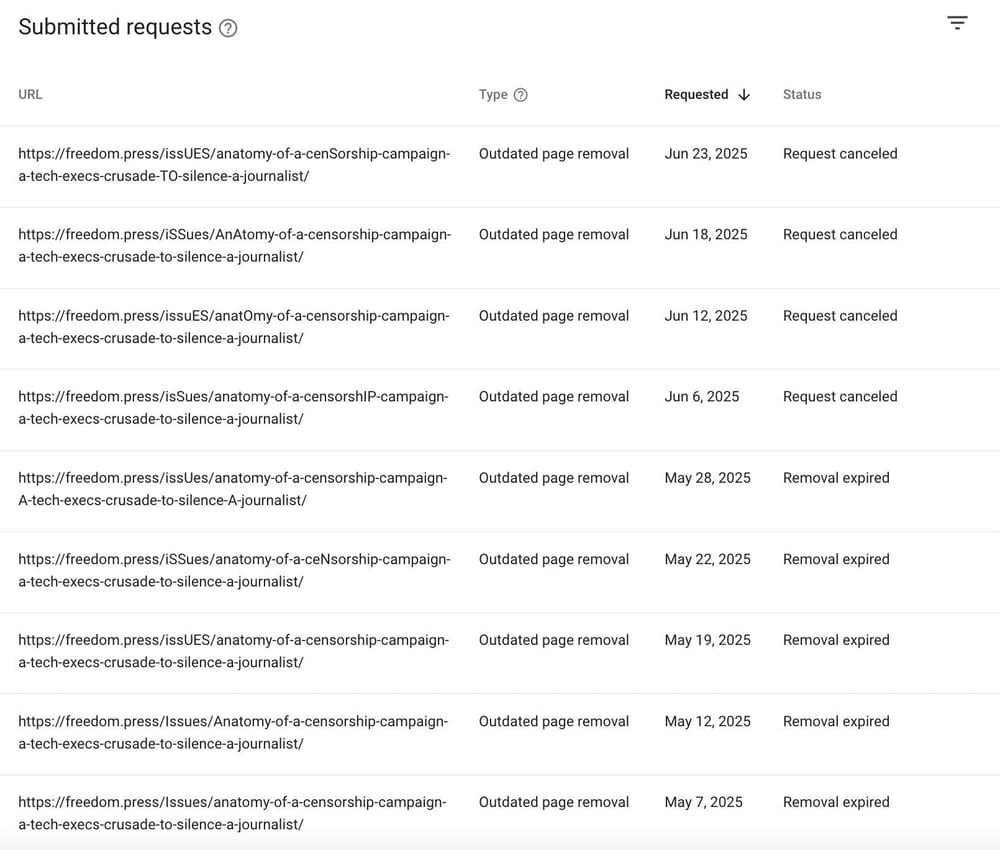Journalists discovered that the Refresh Outdated Content tool allowed anyone to remove specific pages from Google search results. As a result, negative articles about the CEO of a major tech company in San Francisco disappeared from the search.
This story begins in 2023, when independent journalist Jack Poulson, in his publication reported on the arrest of Maury Blackman, which occurred in 2021 and was related to allegations of domestic violence.
At that time, Blackman was the head of Premise Data Corp., a company engaged in developing surveillance systems, and he reacted extremely negatively to the publication about his legal issues. Although the case did not lead to any charges (Blackman’s 25-year-old girlfriend withdrew her complaint against the 53-year-old CEO), Poulson published unpleasant details from the public police report in his article.
But whereas Blackman previously fought negative publications about himself using DMCA complaints and lawsuits, this time he used Google’s tool — Refresh Outdated Content.
At the end of last year, the nonprofit organization Freedom of the Press Foundation, which is dedicated to protecting journalists’ rights, already reported on Poulson’s investigation and Blackman’s response actions. However, in June 2025, the journalist reached out to the organization once again, as his article suddenly disappeared from Google’s search results entirely.
An NGO conducted its own investigation, which ultimately led to the discovery of a little-known Google feature called Refresh Outdated Content. Google initially created this tool to allow users to report outdated or error-inducing pages so that search results could be cleansed of clutter. Notably, Refresh Outdated Content does not record who is sending the requests.
However, it was discovered that a bug in this tool allowed anyone to remove specific pages from search results. In this case — mentions of Blackman’s arrest.
For instance, the article about Blackman completely disappeared from search and did not appear in the results even when searching for the exact title. Furthermore, Poulson noted that two of his articles on Substack also vanished from the search.
Although Google does not remove links from search results simply at someone’s request, in this case, a bug allowed exactly that. By submitting a request via Refresh Outdated Content, one could specify a URL with altered casing— for example, writing AnAtomy instead of anatomy, or censorSHip instead of censorship. Due to the case-insensitivity of the Google search crawler, it would check the modified URL, receive a 404 error (“Page Not Found”) in response, and remove the link from the index.

Researchers at the Freedom of the Press Foundation discovered that Blackman himself or someone acting on his behalf exploited this bug “dozens of times” in May and June 2025. It is noted that after leaving Premise, Blackman became the head of The Transparency Company, which specializes precisely in online reputation management.
Eventually, the researchers reached out to Google representatives, and the company confirmed the presence of the vulnerability. Currently, Paulson’s articles and those from the Freedom of the Press Foundation should once again appear in Google search results, and the “Refresh Outdated Content” tool can no longer be misused to remove pages from searches.
However, it remains unclear whether this bug was known earlier and the extent to which it could have been exploited. Google assured researchers that the issue affected only a “small fraction of sites,” but they did not provide specific numbers.
